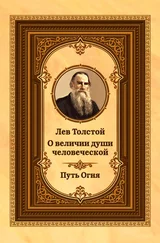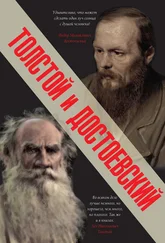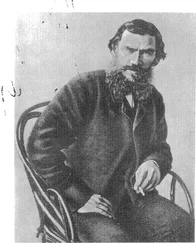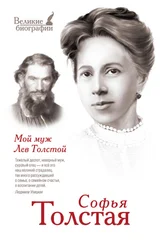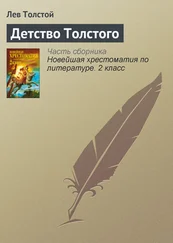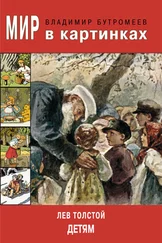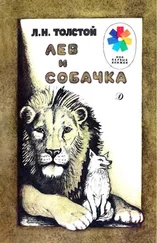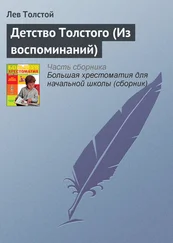Лев Толстой - Katia
Здесь есть возможность читать онлайн «Лев Толстой - Katia» весь текст электронной книги совершенно бесплатно (целиком полную версию без сокращений). В некоторых случаях можно слушать аудио, скачать через торрент в формате fb2 и присутствует краткое содержание. Издательство: Иностранный паблик, Жанр: Русская классическая проза, на английском языке. Описание произведения, (предисловие) а так же отзывы посетителей доступны на портале библиотеки ЛибКат.
- Название:Katia
- Автор:
- Издательство:Иностранный паблик
- Жанр:
- Год:неизвестен
- ISBN:нет данных
- Рейтинг книги:3 / 5. Голосов: 1
-
Избранное:Добавить в избранное
- Отзывы:
-
Ваша оценка:
- 60
- 1
- 2
- 3
- 4
- 5
Katia: краткое содержание, описание и аннотация
Предлагаем к чтению аннотацию, описание, краткое содержание или предисловие (зависит от того, что написал сам автор книги «Katia»). Если вы не нашли необходимую информацию о книге — напишите в комментариях, мы постараемся отыскать её.
Katia — читать онлайн бесплатно полную книгу (весь текст) целиком
Ниже представлен текст книги, разбитый по страницам. Система сохранения места последней прочитанной страницы, позволяет с удобством читать онлайн бесплатно книгу «Katia», без необходимости каждый раз заново искать на чём Вы остановились. Поставьте закладку, и сможете в любой момент перейти на страницу, на которой закончили чтение.
Интервал:
Закладка:
He was saying: “Are you not afraid?” But the words I heard, were: “I love thee, dear child! I love thee! I love thee!” His look said it, and his arm said it; the light, the shadow, the air, and all things repeated it.
We went through the whole garden, Macha walked near us, taking short steps, and panting a little, she was so tired. She said it was time to go in, and I was so sorry for the poor creature. “Why does not she feel like us?” I thought. “Why is not everybody always young and happy? How full this night is of youth and happiness, – and we too!”
We returned to the house, but it was a long time before Sergius Mikaïlovitch went away. Macha forgot to remind us that it was late; we talked of all sorts of things, perhaps trivial enough, sitting side by side without the least suspicion that it was three o’clock in the morning. The cocks had crowed for the third time, before he went. He took leave of us as usual, not saying anything particular. But I could not doubt that from this day he was mine, and I could no longer lose him. Now that I recognized that I loved him, I told Macha all. She was delighted and touched, but the poor woman got no sleep that night; and as for me, after walking a long, long time up and down the terrace, I went to the garden again, seeking to recall every word, every incident, as I wandered through the paths where we had so lately passed together. I did not go to bed, that night, and, for the first time in my life, I saw the sun rise and knew what the dawn of day is. Never again have I seen such a night and such a morning. But I still kept asking myself why he did not tell me frankly that he loved me. “Why,” thought I, “does he invent such or such difficulties, why does he consider himself old, when everything is so simple and so beautiful? Why lose thus a precious time which perhaps will never return? Let him say that he loves, let him say it in words, let him take my hand in his, bend down his head and say: “I love.” Let his face flush, and his eyes fall before me, and then I will tell him all. Or, rather, I will tell him nothing, I will only hold him fast in my arms and let my tears flow. But if I am mistaken? – if he does not love me?” This thought suddenly crossed my mind.
I was terrified by my own feeling. Heaven knows where it might have led me; already the memory of his confusion and my own when I suddenly dropped down into the cherry orchard beside him, weighed upon me, oppressed my heart. The tears filled my eyes, and I began to pray. Then a thought, a strange thought, came to me, which brought me a great quietness, and rekindled my hope. This was, the resolution to commence my devotions, and to choose my birthday as my betrothal day.
How and why? How could it come to pass? That I knew nothing about, – but from this moment I believed that it would be so. In the meantime, broad day had come, and every one was rising as I returned to my chamber.
CHAPTER IV
IT was the Carême de l’Assomption , 3 3 This expression, peculiar to Russia, corresponds to what in Catholic countries is called: Making a preparatory retreat.
and consequently no one was surprised at my commencing a season of devotion.
During this whole week Sergius Mikaïlovitch did not once come to see us, and far from being surprised, alarmed, or angry with him, I was content, and did not expect him before my birthday. Throughout this week I rose very early every day, and while the horses were being harnessed I walked in the garden, alone, meditating upon the past, and thinking what I must do in order that the evening should find me satisfied with my day, and proud of having committed no faults.
When the horses were ready, I entered the droschky, accompanied by Macha or a maid-servant, and drove about three versts to church. In entering the church, I never failed to remember that we pray there for all those “who enter this place in the fear of God,” and I strove to rise to the level of this thought, above all when my feet first touched the two grass-grown steps of the porch. At this hour there were not usually in the church more than ten or a dozen persons, peasants and droroviés, preparing to make their devotions; I returned their salutations with marked humility, and went myself, (which I regarded as an act of superior merit,) to the drawer where the wax tapers were kept, received a few from the hand of the old soldier who performed the office of staroste, 4 4 In the Greek Church the staroste acts as church-warden, collector of alms, etc.
and placed them before the images. Through the door of the sanctuary I could see the altar-cloth Mamma had embroidered, and above the iconstase 5 5 Screen, upon which are the images.
two angels spangled with stars, which I had considered magnificent when I was a little girl; and a dove surrounded by a gilded aureole which, at that same period, often used to absorb my attention. Behind the choir I caught a glimpse of the embossed fonts near which I had so often held the children of our droroviés, and where I myself had received baptism. The old priest appeared, wearing a chasuble cut from cloth which had been the pall of my father’s coffin, and he intoned the service in the same voice which, as far back as I could remember, had chanted the offices of the Church at our house, at Sonia’s baptism, at my father’s funeral service, at my mother’s burial. In the choir I heard the familiar cracked voice of the precentor; I saw, as I had always seen her, a certain old woman, almost bent double, who came to every service, leaned her back against the wall, and, holding her faded handkerchief in her tightly clasped hands, gazed with eyes full of tears at one of the images in the choir, mumbling I knew not what prayers with her toothless mouth. And all these objects, all these beings, – it was not mere curiosity or reminiscence which brought them so near to me; all seemed in my eyes great and holy, all were full of profound meaning.
I lent an attentive ear to every word of the prayers I heard read, I endeavored to bring my feelings into accord with them, and if I did not comprehend them, I mentally besought God to enlighten me, or substituted a petition of my own for that which I had not understood. When the penitential prayers were read, I recalled my past, and this past of my innocent childhood appeared to me so black in comparison with the state of serenity in which my soul was, at this time, that I wept over myself, terrified; yet I felt that all was forgiven me, and that even if I had had many more faults to reproach myself with, repentance would only have been all the sweeter to me.
At the conclusion of the service, at the moment when the priest pronounced the words: “May the blessing of the Lord our God be upon you,” I seemed to feel within me, instantaneously communicated to all my being, a sense of even, as it were, physical comfort, as if a current of light and warmth had suddenly poured into my very heart.
When the service was over, if the priest approached me to ask if he should come to our house to celebrate vespers, and what hour would suit me, I thanked him with emotion for his offer, but told him that I would come myself to the church either on foot or in the carriage.
“So you will yourself take that trouble?” he asked.
I could not answer, for fear of sinning from pride. Unless Macha was with me, I sent the carriage home from the church, and returned on foot, alone, saluting humbly all whom I met, seeking occasion to assist them, to advise them, to sacrifice myself for them in some way; helping to lift a load or carry a child, or stepping aside into the mud to yield a passage.
One evening I heard our intendant, in making his report to Macha, say that a peasant, Simon, had come to beg for some wood to make a coffin for his daughter, and for a silver rouble to pay for the mortuary service, and that his request had been complied with.
Читать дальшеИнтервал:
Закладка:
Похожие книги на «Katia»
Представляем Вашему вниманию похожие книги на «Katia» списком для выбора. Мы отобрали схожую по названию и смыслу литературу в надежде предоставить читателям больше вариантов отыскать новые, интересные, ещё непрочитанные произведения.
Обсуждение, отзывы о книге «Katia» и просто собственные мнения читателей. Оставьте ваши комментарии, напишите, что Вы думаете о произведении, его смысле или главных героях. Укажите что конкретно понравилось, а что нет, и почему Вы так считаете.

